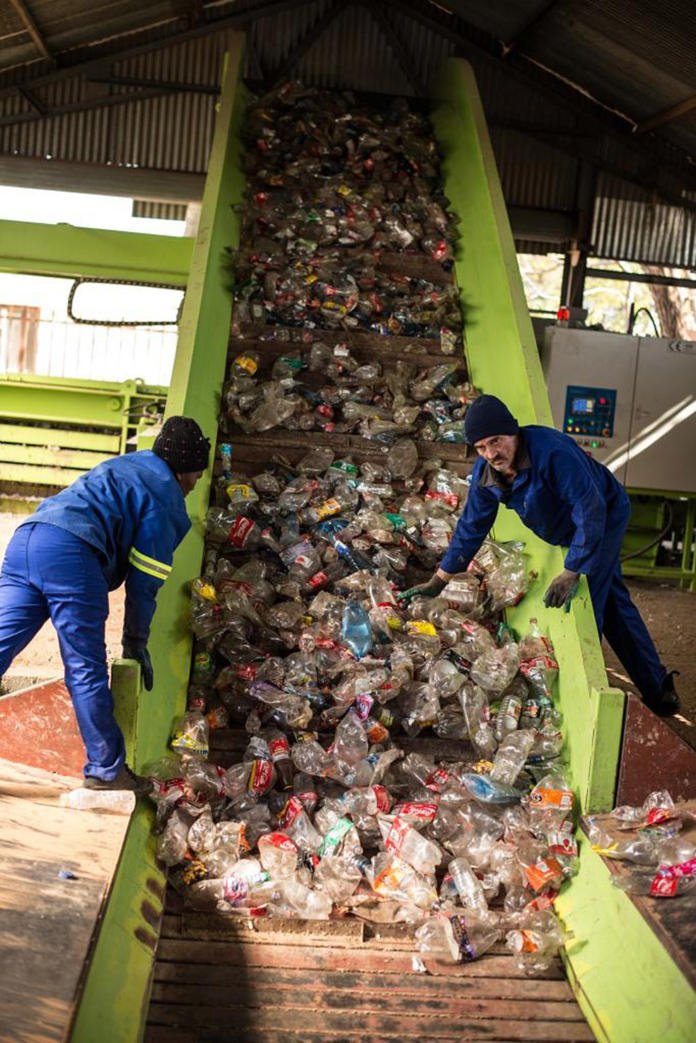PRODUCERS of polyethylene terephthalate (PET) plastic in South Africa realised that collectively addressing their responsibilities with respect to post-consumer waste PET packaging would be more effective and efficient than government-imposed regulation. Thus, PETCO (PET Recycling Company) was established at the end of 2004 as an industry-driven and financed national recycling initiative, based on the concept of Extended Producer Responsibility (EPR), the goal being to capitalise on the expected growth in the market for recycled PET and to act as the vehicle through which the PET industry could self-regulate and co-ordinate its recycling activities.
PETCO, as a non-profit company, is not involved in the physical collection or recycling of waste PET in South Africa, choosing to remain outside of the PET recycling value chain. Instead, it acts as a Producer Responsibility Organisation (PRO) that financially supports, on behalf of its members, activities along the waste PET value chain. PETCO members include brand-owners, resin producers, converters (who manufacture bottles from PET resin) and bottlers.
The PETCO Business Model
A key component of the PETCO model is a voluntary EPR fee paid by (i) converters who manufacture PET bottles from PET resin, (ii) bottlers who fill PET bottles, and (iii) PET importers. Resin producers and brand owners also contribute financially to PETCO in the form of annual grants. PETCO uses the revenue it collects to support recyclers, particularly during adverse economic cycles. Given that the market price of PET fluctuates as a result of fluctuations in oil prices, exchange rates, demand from large countries such as China, and other factors, it can be a volatile market. This support for the recycling value chain is paid out at contracted rates for tonnages, in line with PETCO’s annual recycling targets. In turn, recyclers are then able to ensure a consistent demand for post-consumer PET from collectors. Many of these waste PET collectors operate informally, either through collection at kerbside or at landfills.
Since the establishment of PETCO, post-consumer PET bottle recycling in South Africa has grown from 2% in 2000 to 63% in 2018 – with a total of 98,649 tons of PET or 2.3 billion bottles being recycled – equating to 6.2 million bottles collected every day in 2018. This is a substantial achievement in a relatively short span of time.
Development of Infrastructure for Local Beneficiation
Recognising that business innovation sits at the heart of economic transitions, PETCO views itself as a catalyst of design for recycling innovation, preserving the value of existing resources and utilising rPET (recycled PET) in more and more applications. Through targeted support of recycling operations, PETCO has stimulated the development of local end-use markets as well as the export of fibre produced from bottles that would have ended up in landfill sites. More recently, Bottle-2-Bottle Plants, including two Coca-Cola approved bottle grade PET recycling plants, have been established with support from PETCO. Recent investments to manufacture PET strapping and monofilament exclusively from post-consumer material, marks an important step in reviving local manufacturing in a sector that has for many years been serviced almost exclusively by imports.
The Collection Network
The collection network of post-consumer PET material in South Africa is largely unregulated or self-regulated, with no widespread municipal separation at-source collection systems in place yet. Recyclables are mostly recovered from co-mingled waste by a network of informal collectors and micro-entrepreneurs. These collectors, consolidate and supply post-consumer PET bottles to industrial-scale recycling operations, typically via intermediary agents such as buy-back centres. In many cities in South Africa, PET recycling activities provide income generating opportunities and improved livelihoods for the urban poor. The main constraints faced by collectors and small-scale manufacturers include: poor access to material (volumes), lack of transportation, inadequate capital, lack of market information and business acumen, lack of equipment and tools, safe space to separate and store material, inadequate business premises, and poor working conditions.
